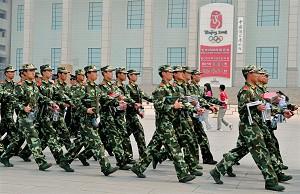HONG KONG—China’s grip on dissent in Tibet remains tight after deadly protests there in March, with more than 1,000 people still detained without charge, human rights group Amnesty International said in a new report on Thursday.
“Many hundreds, possibly thousands of Tibetans languish in prisons or detention centers without the government publicly acknowledging their whereabouts or formally charging them with a criminal offence,” the report read.
Many were denied access to family and lawyers in a violation of international human rights conventions, it said.
“This is really a call to the Chinese government to actually provide that information and if people are detained, explain why they’re being detained,” Sam Zarifi, Amnesty’s Asia-Pacific director, told Reuters by telephone from London.
“Either charge them and put them on fair trial or release them immediately,” he added.
Amnesty’s report called on Beijing to “release immediately and unconditionally those detained solely for engaging in peaceful protest, including support for the Dalai Lama, the independence of Tibet, or greater autonomy for Tibet.”
The anti-China disturbances which broke out in Lhasa and nearby Tibetan areas posed the sharpest political challenge to Chinese rule in the mountain kingdom for decades, sparking global anti-China protests ahead of Beijing Olympics in August.
Amnesty also urged China to end an information blackout in Tibetan regions by granting free access to journalists and other foreign observers, including U.N. human rights experts.
The group said media coverage of the Olympic torch relay in the sensitive western region of Xinjiang should go unimpeded, with Uyghur militants there accused by Beijing of working with al Qaeda terrorism to push for an independent state.
China, however, took steps to restrict foreign reporters from reporting freely as the Olympic flame passed through the ancient Silk Road city of Kashgar on Wednesday.
“(This) obviously shows that for the Chinese government political sensitivities are paramount ... they’re not following on their Olympic promise that the Olympics would be free and open,” said Zarifi.
China blames Tibet’s spiritual leader, the Dalai Lama, and his government-in-exile for plotting the riots, though Beijing, under pressure from Western leaders, held a round of talks with Tibetan envoys in the southern Chinese city of Shenzhen in May.
Further talks were postponed by Beijing however, after the deadly Sichuan earthquake which killed more than 69,000 people.





